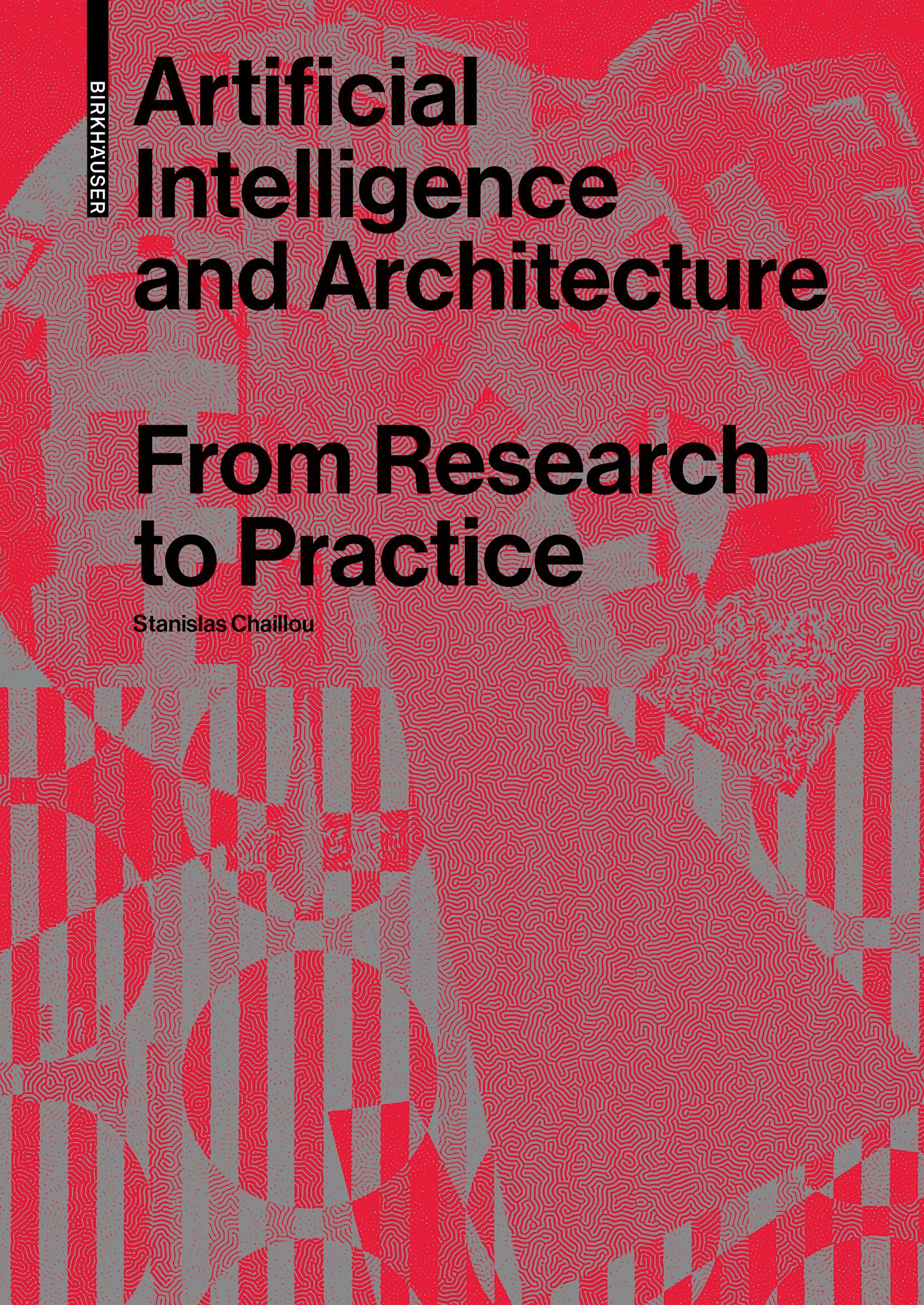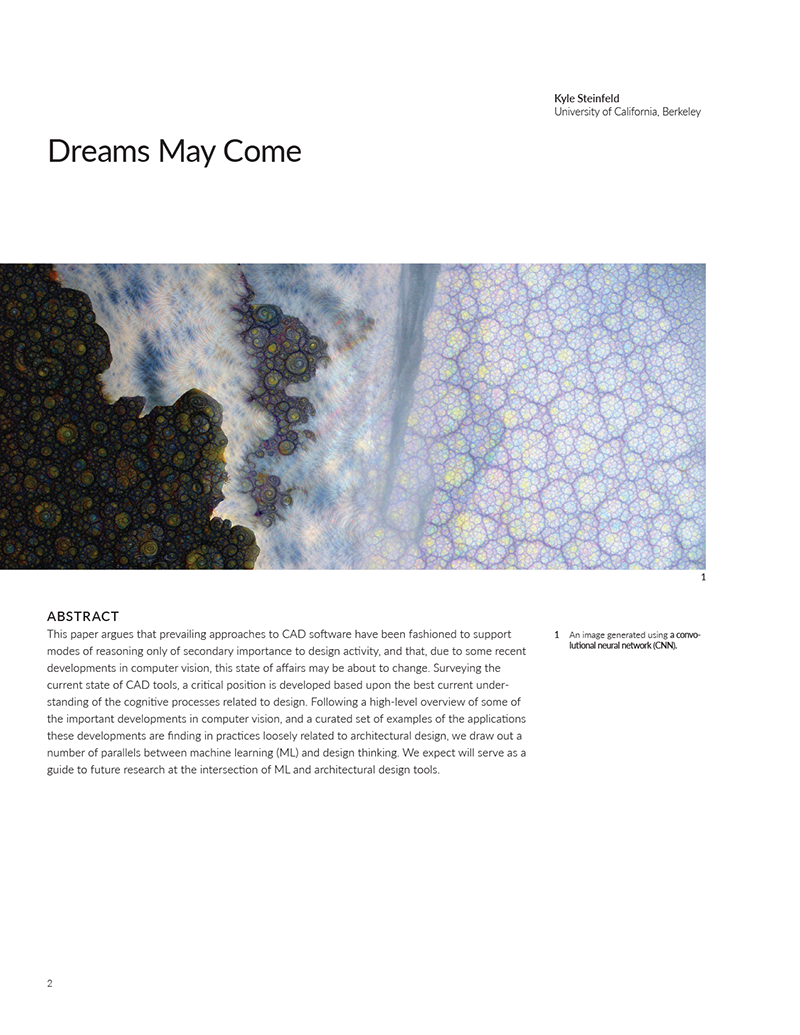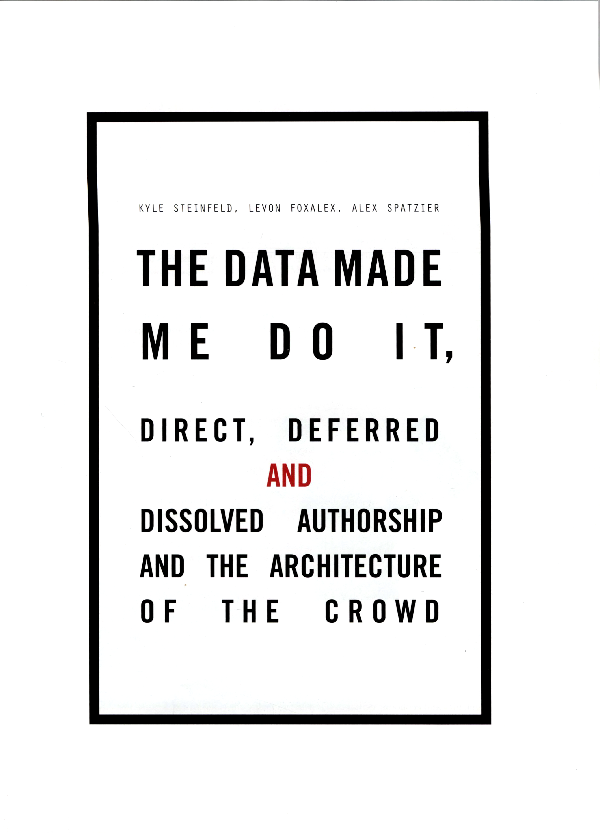L'apprenti Sorcier
(The Sorcerer's Apprentice)
Kyle Steinfeld
In a chapter of Artificial Intelligence and Architecture: From Research to Practice, edited by Stanislas Chaillou, I argue that while recent developments in artificial intelligence threaten to dislodge some of our basic assumptions about the nature and purpose of computational design tools, creative designers ought to welcome the disruption.


